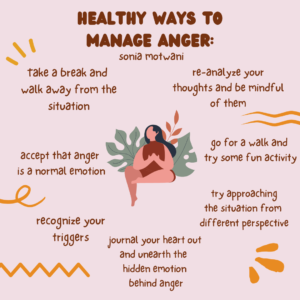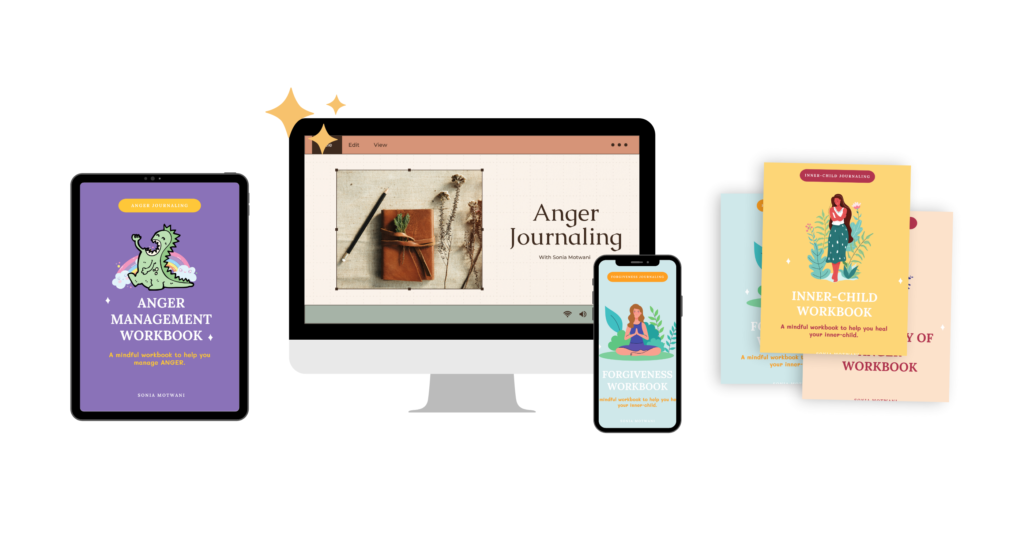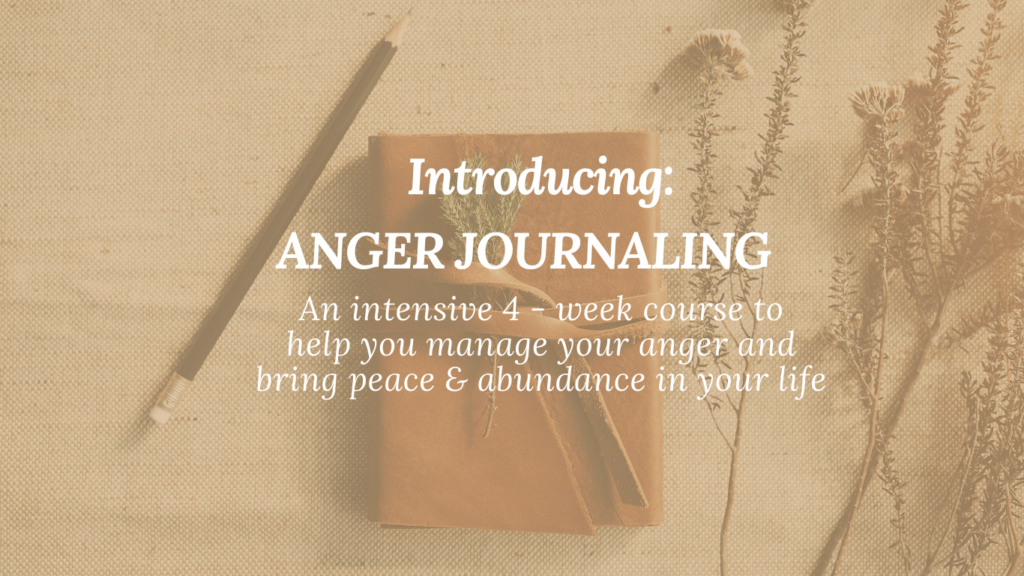Journal prompts, Journaling tips & techniques, mental health
How journaling can help you overcome anger
How having a journal can actually help you cope and manage anger?
Anger can really be a complex issue and as humans, we have faced all kinds of situations when we failed to control or overcome our anger. This really doesn’t define you or labels you as some kind of angry person. However, it’s necessary to understand how harmful anger can be for your mental, physical and emotional well-being.
Have you ever felt so angry that you regretted it later? Did you do or say something hurtful when you were angry and that cost you way too much? Do you sense the uneasy feeling in your body that anger manifests? And you’re reading this so probably you’re dealing with all the above things.

But guess what, you can manage your anger at whichever stage you are in, you can control your thoughts and emotions and help yourself feel calm and peaceful. Keep reading for I’m going to show you my exact steps of managing anger using journaling. But let’s understand what is anger!!
What actually is anger?
Anger is a natural response to some kind of threat. While anger is considered a negative emotion, it certainly is not. It depends on us how we perceive anger as, how we respond to it. However, anger usually harms more than it helps, and hence it becomes necessary to learn to manage anger. Besides, there’re so many myths around anger that made it difficult for us to constructively process this emotion.
Does this sound familiar to you?
- Expressing anger is bad
- You need to stop being angry
- Angry people are always bad
- Just ignore your angry feelings and it will go away
- Anger creates more problems so just eat it up and so many more
It is also necessary to understand the pattern and recognize the anger triggers. This trigger can be a person or a place or even a situation. Many times, in my case I have noticed that I get angry because of the situation and hence I really have to sit down and understand what’s in my control and what’s not. This exercise really gives me the idea of why I shouldn’t be focusing more on things and events that are not in my control.
But most importantly, anger is a secondary or a substitute emotion. You might be angry but deep down it’s just a reaction to some other feeling. Think of anger as a masking feeling. These feelings can be jealousy, hurt, insecurity, low self-esteem, sadness, grief, etc. There’s so much more than is hidden behind anger and the only way to heal from these feelings of hurt or grief is to deal with them.
Why do we get angry?
As we discussed earlier, we get angry because of a trigger. There’s something that triggers, provokes us that makes us angry. This can be a person, place, or situation. It’s so necessary to be aware of the triggers if we really want to manage anger.
The most important point to note here is that our perception of the trigger can affect the intensity of our response to the trigger. Anger is generally the reaction to the perceived threat of losing something or even losing some value.
The core to this is how we introspect our thoughts and actually manage our manager. This is why I have always shared my love for journaling. Journaling for anger has helped me realize my triggers, my patterns, and how to process those tough emotions that lie beneath anger. Let me explain the reason why journaling for anger will actually help you with anger management and overcoming anger issues.
Why you should use journaling for anger management?
Many of us express anger in order to numb our pain but that really doesn’t help. You need to process your emotions, those tough feelings in order to actually heal yourself. I know this isn’t easy and at times even I fail at this but when I remind myself of how much this is affecting me, my mental health, and my community; I realize my ‘why’.
Journaling has been proven as a profound way to process emotions and handle them with the third-person view. When you’re writing, you actually are an observer of the event that happened so it’s easy to detach yourself.

This beautiful art provides you with a non-judgmental space to vent out, to vomit your true feelings on paper. Sometimes, we silence ourselves and shield our feelings with anger which never really helps us. These numbed feelings are then manifested as yelling, shouting, or can even harm our physical health. If you’re new to journaling, do not worry. There absolutely are no rules here and you can never journal the wrong way.
- Journaling renders you space to sit back and evaluate your thoughts, behaviors, and emotions
- Provides you with the opportunity to choose different thoughts
- Guides you to be aware of your thought patterns, notice the triggers and be mindful of what to do next
- Offers clarity around overwhelming thoughts
- Brings you in the space of utter bliss and peace
- Lowers your emotional reactivity to others
- Helps you to look at things from a different perspective
- Validates all your emotions and makes you feel humane
Anger management could really be challenging if you don’t have the tools to help you with the same. Journaling is such an amazing self-reflective tool that will give you the space to ponder and actually realize what’s happening within. You see, when we change our internal reality, our external reality automatically shifts.
Read about re-discovering your soul through journaling.
Here’re how having an anger journal can help you overcome anger:
Your anger journal can really be a helpful tool to keep a track of your experiences, triggers and how do you react to them. Whenever you feel out of control, you can reflect in your journal about your experiences. This can seem easy but in a time of anger, you might not want to even pick your journal and I totally get that.
This is a conscious decision you need to make for your well-being to show up to your anger journal even when you don’t really feel like it. In order to get the most out of your anger journal and overcome anger, here’re some questions that you should consider recording.
- What happened that made you feel angry or hurt?
- What was so provocative of that situation?
- What were the thoughts running inside your head?
- On a scale of 1-10; how much angry did you feel?
- How your anger is affecting your surroundings?
- How do you feel in your body when you got angry?
- What was your response to this anger?
- How did you behave when you were triggered by something external?
- Did you already have some sort of uneasy feeling, tension, or stress before the event?
- Did you feel like screaming, throwing things around, banging doors, or just go silent?
- How did you feel later after the incident during the day?
- What were the consequences?
Keep a log of this and every time you get angry, go back and notice the patterns. But most importantly, this journal will make you realize the triggers that cause you to feel angry in the first place. I also posted a fun reel with a powerful exercise on overcoming anger on my IG account.
Mindful journal prompts for overcoming anger:
Alternatively, here’re some mindful journal prompts to help you manage anger and overcome it.
1. What triggered your anger? What provoke you to feel angry in the first place?
2. What were the other feelings besides anger that you felt? Were you hurt or sad or were you grieving?
3. What were your thoughts when you were in anger? How did that make you feel?
4. How did you respond to this situation? Were you enraged or was it easy to calm down?
5. How often do you find yourself feeling angry? Have you noticed any pattern during these times of anger?
6. How does this feel inside your body? How do you choose to release it?
7. Do you love yourself enough to process these heavy emotions and choose to let go? How is anger affecting you and the people around you?
 8. What would happen if you choose to forgive and let go of someone who caused you anger?
8. What would happen if you choose to forgive and let go of someone who caused you anger?
Sit in peace and journal on this. Many times, we just need to mother ourselves when we are passing through these heavy emotions. Also, it’s totally human of you to feel these emotions.
Read more about forgiveness journal here.
Journaling to overcome anger – conclusion
Hold yourself tight and let yourself know that you can get through this and that this is not forever. You got this. The fact that you’re here reading this shows how much it means to you to deal, manage and overcome anger. I have a detailed section of anger management along with 30 different topics and 200+ mindful prompts in my journal. I so appreciate your love and support for my work.






Elsie
June 10, 2022 at 3:09 pmHey thanks.
Sonia
June 16, 2022 at 6:34 amYou’re welcome, Elsie.